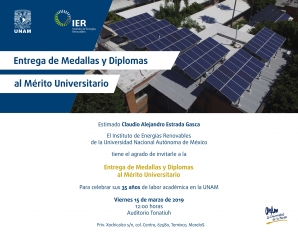Alejandro Ayala-Cortés, Pedro Arcelus-Arrillaga, Marcos Millan, Camilo A. Arancibia-Bulnes, Patricio J.Valadés-Pelayo, Heidi Isabel Villafán-Vidales
Abstract
Hydrothermal processes are attractive options for the transformation of mixtures of biomass with large amounts of water, i.e. above 20wt. At hydrothermal conditions, the special properties of water makes it an attractive reaction medium to obtain several bio-based platform chemicals or fuel gases, such as hydroxymethilfurfural or fufurals, syngas, hydrogen, methane, etc. However, one of the main challenges is that a large amount of energy is required to heat reactants (mixture of water and biomass), which is usually achieved by combustion of a fraction of the bio-oil product. Therefore, to reduce this consumption, their integration with an external renewable energy source, such as concentrated solar radiation has been proposed. This approach has been recently analyzed by several research groups as an option to have sustainable and economically attractive processes. This work provides an overview of the different experimental and theoretical strategies to incorporate concentrated solar technologies into hydrothermal processing of biomass, including the main challenges of such integration for process technical feasibility.

